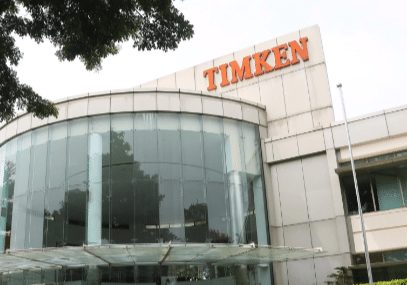
Introduction:
The competition between TIMKEN and SKF, two leading bearing manufacturers, has been fierce in the industry. As crucial components in various applications, bearings must deliver exceptional performance and durability to ensure smooth and efficient machinery operations. In this article, we will conduct a comprehensive analysis to determine which brand excels in terms of performance and durability by examining their design features, materials, load-carrying capacity, precision, resistance to extreme conditions, and customer feedback.
Design Features:
a. TIMKEN Bearings:
TIMKEN’s bearings are engineered with a robust design, featuring larger rollers and optimized internal geometry. This design enhances the bearings’ load-carrying capacity, making them ideal for heavy-duty applications that demand exceptional strength and resistance to impact.
b. SKF Bearings:
SKF’s focus on precision engineering results in bearings with tight tolerance levels and minimal internal clearances. This precision design ensures smooth operation, reduced friction, and low vibration, making them preferred for precision machinery and high-speed applications.
Material Selection and Heat Treatment:
a. TIMKEN Bearings:
TIMKEN’s material expertise allows them to use premium-grade steel alloys, combined with specialized heat treatments, to achieve high hardness, strength, and wear resistance. This material selection enhances the bearings’ ability to withstand harsh operating conditions and heavy loads.
b. SKF Bearings:
Similarly, SKF employs high-quality steel and advanced materials, including hybrid bearings with ceramic balls. The use of ceramic balls reduces friction and heat generation, allowing SKF bearings to excel in high-speed applications that demand reduced friction and extended service life.
Load-Carrying Capacity:
a. TIMKEN Bearings:
TIMKEN bearings are widely known for their exceptional load-carrying capacity, making them ideal for heavy-duty industrial applications. Their robust design and optimized load distribution enable them to handle heavy radial and axial loads with ease.
b. SKF Bearings:
While SKF bearings also exhibit excellent load-carrying capabilities, they particularly excel in applications requiring high-speed operation and precision. The hybrid bearings with ceramic balls contribute to improved performance in high-speed environments.
Precision and Tolerance:
a. TIMKEN Bearings:
TIMKEN bearings are engineered for precision, achieving tight tolerance levels to minimize internal clearances. This precision engineering ensures smooth and consistent performance, making them suitable for precision machinery and high-precision applications.
b. SKF Bearings:
Precision is a key focus of SKF’s bearing design, with minimized tolerances for improved accuracy and reduced friction. Their bearings find extensive use in industries where precise motion control and low vibration are critical.
Resistance to Extreme Conditions:
a. TIMKEN Bearings:
TIMKEN’s specialized heat treatment and material selection provide their bearings with excellent resistance to extreme temperatures, wear, and harsh operating environments. This makes TIMKEN bearings well-suited for heavy industries and rugged applications.
b. SKF Bearings:
SKF’s hybrid bearings, embedded sensors for condition monitoring, and advanced sealing solutions contribute to their bearings’ durability and longevity under extreme conditions. Their ability to withstand contaminants and moisture makes them suitable for demanding environments.
Customer Feedback:
Both TIMKEN and SKF have built a loyal customer base over the years, with users providing positive feedback on the performance and durability of their bearings. Satisfied customers testify to the reliability and long service life of both brands’ products, reflecting their ability to deliver on their promises.
Conclusion:
In conclusion, both TIMKEN and SKF are formidable competitors in the bearing industry, and each brand has its unique strengths. TIMKEN bearings are distinguished by their robust design, exceptional load-carrying capacity, and resistance to extreme conditions, making them a preferred choice for heavy-duty applications. On the other hand, SKF’s focus on precision engineering, hybrid bearings, and innovative technologies positions them as leaders in high-speed and precision applications.
When selecting between TIMKEN and SKF bearings, consider the specific requirements of your application, load capacity, speed, precision, and operating conditions. Both brands are reputable manufacturers, with a proven track record of delivering high-quality bearings tailored to meet diverse industrial needs. Consulting with bearing experts and evaluating real-world performance data will empower you to make an informed decision, ultimately leading to enhanced machinery performance, extended bearing life, and improved overall efficiency.


